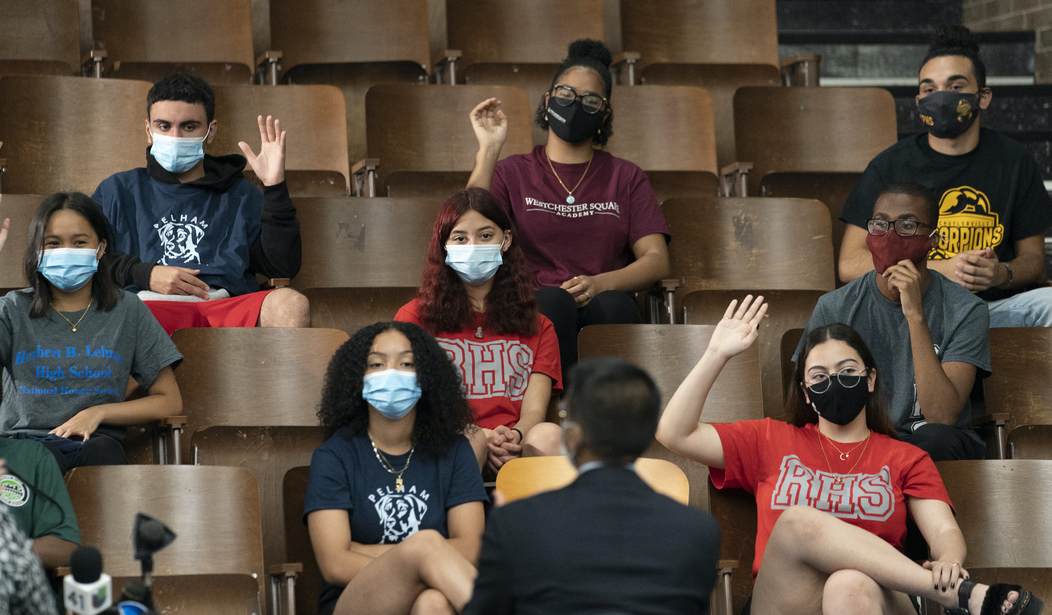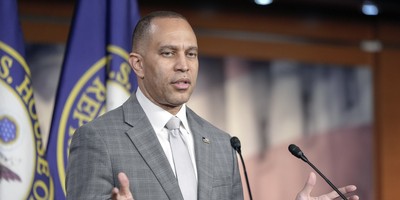The 1960’s satire, “The Rise of the Meritocracy,” written by British sociologist and politician Michael Dunlop, was required reading in college sociology and political science courses during my time in college. A work of fiction with Swiftian bite, it describes a dystopian society in the future United Kingdom in which intellectual talent and achievement of the individual replaced the divisions of social class. However, it created a resentful, disenfranchised underclass of the “less merited.”
Dunlop’s warning is prescient in a debate now splitting both the political left and right.
We take for granted that innovative, hard-working individuals will use their talents to get rich while at the same time making discoveries that improve the lives of others. Meritocracy is a political system in which economic goods and/or political power is vested in people on the basis of talent and achievement. This has been fueled by standardized testing, especially cognitive, in education and the workplace.
Does such a system discriminate against the less highly educated and those who perform less well on ability tests? Is it creating an arrogant elite—largely white, increasingly Asian—with the money, resources, and connections to jump to the head of the line? Are the meritocrats taking us back to the old days when wealth and privilege were inherited and the poor would stay poor.
Or does meritocracy still give those with talent and smarts a chance to rise to the top better than any other system of privilege? Every society has elites, the question is whether it is through talent or other criteria such as political ideology, the correct representation of skin color, or, paradoxically, impoverished background. It wasn’t so long ago that societies were ruled by aristocracies and the people below filled the same roles as their parents. Social mobility was considered dangerous and stratification of the classes made upward mobility almost impossible. Individuals like Thomas Cromwell were the exception.
Recommended
This contrasted with the American dream/myth of Horatio Alger, rags to riches on the basis of talent, persistence and hard work. Without the rigid class barriers of the Old World, Americans of all backgrounds could reach the heights. The Protestant Reformation encouraged education and people were taught that hard work and success were good. Self-made men would then lead us to a booming economy
But “Rise of the Meritocracy” describes how meritocracy of the smartest marrying the smartest who had the smartest babies, and, with the privilege of the riches that followed, invested in their childrens’ education with special teachers, experiences, and connections. They became a new type of arrogant and entrenched elite.
On the right, the pushback to this meritocratic caste system has found its populist voice in Trump’s millions of non-college educated whites feeling they are relegated to second class status and they resent the “expertise” of the snobby elites. Hence, Make America Great Again. The attack on meritocracy also comes from the left. Daniel Markovits, a law professor at Yale, recently published “The Meritocracy Trap: How America’s Foundation Myth Feeds Inequality, Dismantles the Middle Class and Devours the Elite.” It echoes the “Rise of the Meritocracy” warning. “Merit itself has become a counterfeit virtue, a false idol. And meritocracy—formerly benevolent and just-- has become what it was invented to combat. A mechanism for the concentration and dynastic transmission of wealth and privilege across generations. A caste order that breeds rancor and division.” Consider the outrage against actress Lori Loughlin manipulating her daughters’ admissions to elite colleges.
Meritocracy ditched patronage in favor of open competition. It promoted selective state schools in the UK, the Ecole Nationale in France, and the spread of SAT testing in the U.S. Liberals worry that the SAT tests and standardized IQ tests to identify talent disadvantage Blacks. To combat the inequity of lower average test results in some races because of lower economic backgrounds, affirmative action was born. On the other hand some conservatives look at scandals like Enron, Bernie Maddoff, Tyco, AIG, Lehman Brothers and now the FTX crypto scandal as examples of the corruption of too many elite meritocrats.
Academic leaders and politicians are shifting from trying to discover the most capable young people in order to create more racial equality of results.
New York’s Stuyvesant High School accepts a smaller percentage of applicants than Harvard and has a great record of moving smart kids out of poverty. But former Mayor De Blasio said it has a “diversity problem” because Asians make up a higher percentage of the student body than other groups on the basis of test scores. For the same reason Harvard will allow students to apply for admission without requiring SAT or ACT scores in upcoming classes. Stanford medical school and others are pulling out of the US News Ranking of medical schools because it continues to base the rankings on the Medical College Admission Test (MCAT) scores and grades rather than “equity.”
Studies clearly show that the MCAT is an accurate predictor of medical school success. However, now in the name of “equity” medical schools like Northwestern, CUNY, George Washington, the Robert Wood Johnson Medical School, the University of Florida College of Medicine, and many others don’t even require that applicants take the test. Instead, schools like Harvard use soft criteria such as “personality” to downgrade students with high test scores and grades.
The upcoming Supreme Court decisions on affirmative action at Harvard and University of North Carolina deal with discrimination against Asian students. The court appears skeptical of the claim that test scores and grades may be downplayed in admissions in the name of diversity without discriminating against Asian-Americans. Jews faced this same problem 60 years ago.
At its heart, though, is the debate on meritocracy. The schools are really saying that meritocracy can’t coexist with diversity. In the case of medical schools they are perpetrating the negative stereotype that students from backgrounds underrepresented in medicine are unable to compete with whites. As an aside, I hope they don’t eliminate the tests for would-be brain surgeons. I want my neurosurgeon to have the highest test scores even if his or her personality isn’t the most engaging.
I see dangers from the right and left. On the right there is a danger to a rejection of expertise from “snobbish” intellectuals. A bigger danger, though, comes from the left. It is worse to reject the liberal order and merit testing in favor of government-engineered “equity.” Everyday we see universities and businesses hire barely qualified faculty or job candidates because they add to “diversity.” We need to protect the liberal idea of freedom of all to succeed on merit, not skin color. Intellectual tests and psychological assessments still provide accurate predictors of success and should not be discarded in place of overtly racial preferences.
The Rise of the Meritocracy ends in a footnote that informs us the narrator was killed at a public protest by the “less merited” at “Peterloo” (recalling the Peterloo massacre of 1819 in which the English army repressed demands for more democracy in Parliament.) The footnote ends, “. . .the failings of sociology are as illuminating as its successes.”
Dr Greg Ganske is a retired plastic surgeon who cared for farmers with hand injuries, women with breast cancer, burn patients and children with cleft lips and palates. He trained under Nobel Laureate Dr. Joe Murray at Harvard and served as a Lt. Col in the USArmy Medical Reserve. In 1994 he defeated a 36 year Congressman and served in Congress for four terms before losing a U.S. Senate race. He happily returned to taking care of patients in Des Moines, Iowa.
Dr Greg Ganske is a retired plastic surgeon who cared for farmers with hand injuries, women with breast cancer, burn patients and children with cleft lips and palates. He trained under Nobel Laureate Dr. Joe Murray at Harvard and served as a Lt. Col in the USArmy Medical Reserve. In 1994 he defeated a 36 year Congressman and served in Congress for four terms before losing a U.S. Senate race. He happily returned to taking care of patients in Des Moines, Iowa.
























Join the conversation as a VIP Member